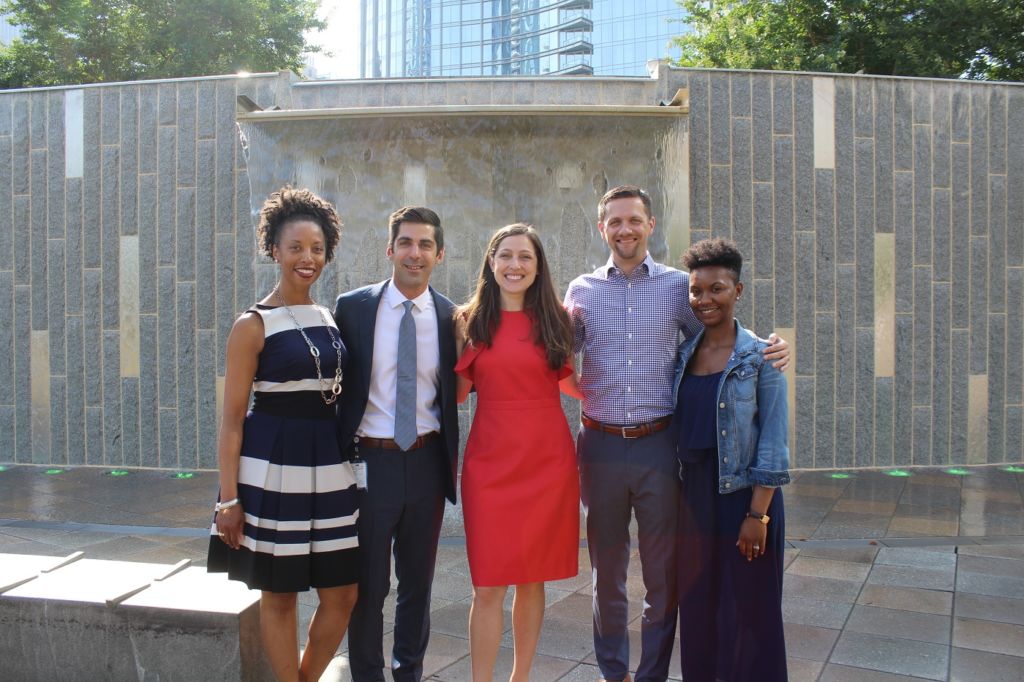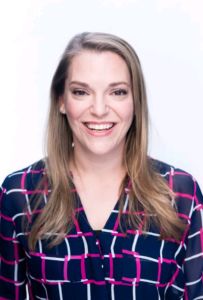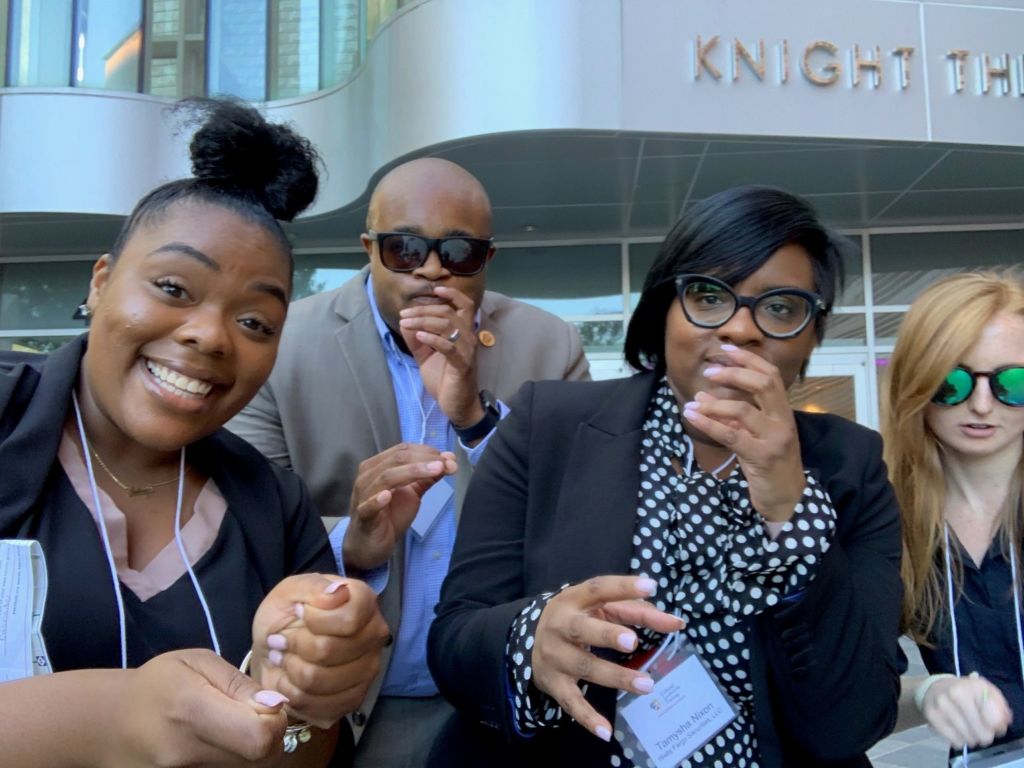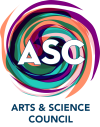CLT in the CLT: ASC Cultural Leadership Training Program Developing New Leaders

*Note: This story was updated May 5, 2024, and originally published April 28, 2022.
By Page Leggett
Being the new “kid” is hard – no matter how experienced you are. Anytime we begin a new job or venture, we want to bring value. But we also need time to learn the ropes.
Serving on a nonprofit board is a privilege that comes with responsibilities. Board members – even new ones – are expected to contribute their knowledge, expertise and – often – their financial resources and/or fundraising prowess.
“You’ll hear people say they joined a board and sort of sat quietly for the first year,” said Katherine Mooring, who coordinates ASC’s Cultural Leadership Training (CLT) program. “The goal with this program is to accelerate that. I think a big reason the graduates are valued by organizations is that they come in more ready to go.”
CLT alumni are not likely to “sit quietly.” Neither are they left to wander through a nonprofit wilderness looking for a board to join.
“Part of the structure of the program is to facilitate a placement,” Mooring explained. “The goal is that everyone who goes through the program and wants a placement will have a board to join.”

Karen Bernhardt, senior vice president of mass advertising at Bank of America, graduated from the CLT program in 2013. Part of what she gained from the program, she said, were a familiarity with the cultural scene in Charlotte, confidence and a network of like-minded peers.
Her first placement was a one-year apprenticeship at the Bechtler Museum of Modern Art. During her tenure, the Bechtler rolled out Bechtler Young Visionaries – the BYVs – an affinity group she co-founded. She next led Actors Theatre of Charlotte (ATC) through a period of massive change that culminated in the theater naming a new leader and finding a new home as resident theater company of Queens University of Charlotte.
After serving two three-year terms, she came off that board and joined the board of JazzArts Charlotte.
Bernhardt felt ready for (almost) all of it.
“You don’t necessarily have all the answers to everything that might arise,” Bernhardt said. “But CLT gives you a great toolkit.”
Said Mooring: “You’re not necessarily going to come into a board role with a binder full of everything you’ll ever experience on a nonprofit board. The goal is really to equip people with the fundamental understanding of what are the roles and responsibilities of a nonprofit board member in North Carolina – some of that varies by state – and to be prepared to identify and ask appropriate and important questions. When they come in, they’re not completely starting from scratch. They’re a lot more prepared to get engaged quickly and ramp up their involvement.”
Doug Singleton, executive director of Charlotte Ballet, has been working with CLT alumni on his organization’s board of trustees for years. One board member, PNC Bank’s Nina Austin, served as treasurer in her seventh year of board service to Charlotte Ballet. She’s not the only CLT alumni currently serving on the ballet’s board. Anna Coon (K&L Gates), Lucrecia Moore (Wells Fargo), Ryan Simmons (MetLife) and Kelly Sherman (Lowe’s) are all CLT alumni currently making a difference on Charlotte Ballet’s board.
“CLT graduates aren’t intimidated to ask the right questions,” Singleton said. “They come in with a practical understanding of what it takes to be a board member. That makes my job so much easier.”
Match.com … for the arts

Bernhardt was “matched” with the Bechtler in a signature part of the program – a “speed-dating event” in which program participants nearing graduation are interviewed by (and get to interview) representatives from participating arts, culture and science nonprofits in Mecklenburg County.
Speed dating generally happens in one of Queens University of Charlotte’s facilities. (Queens gets a spot in the program in exchange for the use of space. “That’s been a great swap,” Mooring said.)
Speed dating is the culmination of eight months of programming. Each CLT cohort has up to 30 participants, all of whom live and/or work in Mecklenburg County. The September-through-May program requires about 32 hours over nine educational sessions held at arts and cultural venues; board observations; social gatherings and a celebratory graduation event.
At the end of the program, ASC places graduates on a board of directors as either an apprentice (typically a one-year term), committee member or as a full-term board member, personally working to find a good fit of interests and skills.
Before that, they spend the better part of a year learning about the legal and fiduciary components of being a board member; their financial obligations; nonprofit financials, including the types of reports they can expect to review; fundraising/donor relations; board/staff relationships; equity, diversity and inclusion.
Mooring, who’s been leading the CLT program since its inception in 2005, doesn’t do all the teaching herself. She brings in nonprofit leaders and others – including CLT alumni – to help facilitate each session.
Each participant pays $1,500 to be part of CLT ($1,000 for those who work with a company/organization with annual revenues/operating budget below $1MM and/or 20 or fewer employees, or full-time volunteers).
“Some companies and organizations fully underwrite the cost for an employee to participate,” Mooring said. “Some have split the cost, which is a cool idea because then it’s building that personal commitment, which is part of being a good board member. And some participants pay the full fare on their own.”
The more you know …

Anyone who’s interested in getting more connected in the cultural community can apply.
Organizations that have participated (or will) in the program to get “matched” with a board member include Children’s Theatre of Charlotte, Digi-Bridge, Bechtler Museum of Modern Art, WDAV, Carolina Raptor Center, VAPA Center and Clayworks.
If organizations are looking for emerging leaders ready to be engaged board members, this is the place to find the talent, Mooring said.
“It’s a great way to get in front of a group of really sharp, committed people,” she said. “These are people interested in not just nonprofit board service, but service in the arts and cultural sector in particular.”
And if you want to get plugged into what’s going on in that sector, CLT is for you.
“There are many ways you can serve as a volunteer in that sector,” Mooring said. “You can be an usher or a docent, for instance. But if you want to serve at the board level – if you really want to lead at that level – this is the place to come.”
“CLT alumni are an essential part of the arts ecosystem in Charlotte,” Singleton said. “I can’t say enough about Katherine and the ASC. They are building a legacy of arts leadership here in Charlotte.”
Get plugged in, then lead.
The application to be part of the 2024-25 CLT cohort is open on ASC’s website through Monday, June 10.
Any leader of a nonprofit interested in tapping into CLT talent should contact Katherine Mooring at cltprogram@artsandscience.org. The ideal timeframe to connect with Mooring is over the summer so that organizations can be part of the process from the time the program kicks off in September.

